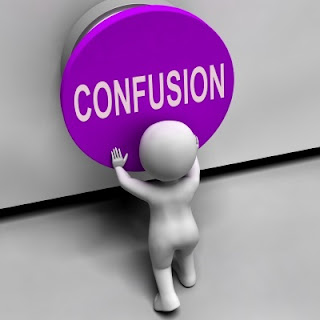Tricky and Confusing Words Part One
By Andrea Merrell
 It has been said
that the English language is more confusing than any other. One reason is
because we have so many different words to describe the same feeling or
emotion. Example: It was awesome, stupendous, wonderful, incredible,
magnificent …
It has been said
that the English language is more confusing than any other. One reason is
because we have so many different words to describe the same feeling or
emotion. Example: It was awesome, stupendous, wonderful, incredible,
magnificent …
Get the idea?
Then we have terms
like driving on the parkway and parking on the driveway. No wonder those from
other cultures have a hard time understanding us.
There are many,
many words that sound alike but are spelled differently and have vastly
different meanings. As writers, we should get a handle on as many of these
words as possible as we share our stories with the world. These words have
incited numerous debates over the decades and caused many editors to go crazy with
the proverbial red pen.
Let’s look at a few of these pesky words.
Their, There, They’re
- Their is a possessive pronoun (Bob and Susie wanted their ice cream in a waffle cone.)
- There is a place or location (The ice cream shop was right there on the corner.)
- They’re is a contraction for they are. (They’re going for ice cream right after lunch.)
Its vs. It’s
- Its is a possessive pronoun. (The train was on its way to the station.)
- It’s is a contraction for it is or it has. (It’s a good thing Meg didn’t miss the train. It's been a long wait.)
To, Too, Two
- To means to go toward or in the direction of. (Let’s go to the circus.)
- Too means also or to an extensive degree. (Billy wants to go to the circus too.) *
- Two is the number after one. (Emily purchased two tickets to the circus.)
*Notice there is
no comma before too at the end of the sentence. This is another common mistake.
Your vs. You’re
- Your is a possessive pronoun. (Cindy was thrilled to be your keynote speaker.)
- You’re is a contraction for you are. (You’re welcome to be our next keynote.)
Whose vs. Who’s
- Whose is the possessive of who. (Whose laptop was left in the conference room?)
- Who’s is the contraction of who is. (Who’s going to try and find the owner of the laptop?)
Lie vs. Lay
- Lie means to tell a falsehood or to recline. (Nate told his sister a lie. I think I might lie down for a while ... not lay down.)
- Lay mean to put something down. (Just lay the groceries on the counter.)
Cite, Site, Sight
- Cite means to quote from or to subpoena. (Henry was asked to cite the words from Shakespeare.)
- Site is a position or location. (They chose a great site for the conference,)
- Sight means vision or the ability to see. (With her new glasses, Sue has excellent sight.)
Wave vs. Waive
- Wave means to gesture (verb) or water curling and breaking on the shore (noun). (Don't forget to wave when you go by. The surfboard rode high on the crest of the wave.)
- Waive means to refrain from or disregard. (The criminal waived his right to a trial.)
Scared vs. Scarred
- Scared means fearful or frightened. (Elizabeth is scared of snakes.)
- Scarred means marked with scars. (The accident left Russell scarred for life.)
Steak vs. Stake
- Steak is a cut of meat. (Maggie likes her steak medium rare.)
- Stake is a pole. (Carson drove the stake in the ground.)
Pair, Pare, Pear
- Pair means two of something. (That's a lovely pair of gloves.)
- Pare means to peel or remove. (Judy needs to pare the cucumbers for the salad.)
- Pear is a type of fruit. (My husband loves pears.)
Lose vs. Loose
- Lose means to misplace. It it also the opposite of win. (Did Sara lose her car keys? No one likes to lose.)
- Loose is the opposite of tight. (The hinges on the door are loose.)
Accept vs. Except
- Accept means to agree. (Will you accept the final decision?)
- Except means but or other than. (Everything in the room looks great except the green chair.)
Was this helpful? Next time we'll look at more tricky and confusing words.
Are there words you struggle with in your own writing? We would love to hear from you.
Are there words you struggle with in your own writing? We would love to hear from you.
(Photo courtesy of
FreeDigitalPhotos.net and Stuart Miles.)
TWEETABLE



Comments
Post a Comment